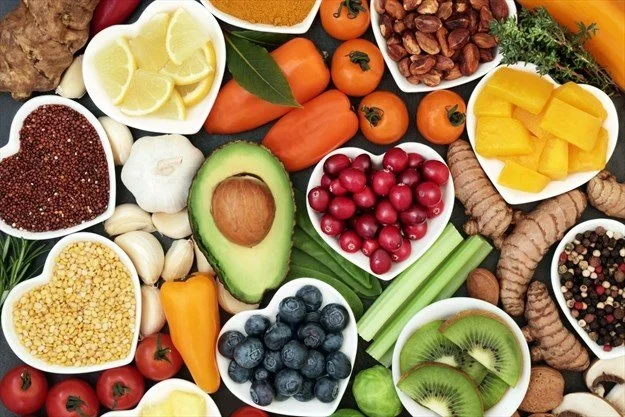New Year, New… Vegetables?
By Katie KellyFor most of us, the New Year brings New Year’s resolutions. This is generally a positive thing, as it encourages us to re-evaluate aspects of our lives which we can improve upon. However, the arrival of January can also trick us into thinking that we suddenly have superpowers which can transform every aspect of our diet, health and fitness. This may cause us to make resolutions that can’t be sustained for a week, let alone a year. Setting unrealistic resolutions can cause us to fall at the first hurdle. When it comes to making realistic and sustainable resolutions, less is often more and making a few very small changes to your regular routine can be a lot more effective than making huge changes that can only last a few days.In recent years, Veganuary has become popular among those who want to try out a vegan diet for the first month of the year. Last year, 250,000 people signed up to the movement and it is likely that many more participated without signing up. This challenge can provide great insight into a vegan lifestyle and increase the amount of plants which people are eating. However, it can be a dramatic change in the diet of most people taking part, and can be a bit overwhelming for their mind and body, from the huge changes taking place and the sudden increase in fibre intakes.Instead of making the huge leap from your regular diet to a vegan diet, a more realistic New Year’s resolution could be to increase your intake of fruit and vegetables by one portion a day. Many of us struggle to reach the recommended 5-7 portions of fruit and vegetables each day and college life can make this particularly hard to achieve. Working a few small changes into your everyday routine can be the easiest way to achieve this, so here are some ideas for fitting an extra portion into your day:
- Be prepared - You can only eat what is available to you, so make sure you chuck some fruit and veggies into your trolley when you’re doing your weekly shop. Offers on fruit and vegetables such as Aldi’s Super 6 can be a great way of keeping variety in your diet. Try not to be overly ambitious when doing your groceries and only buy what you think you will actually eat to avoid them going off.
- Add some extra - When preparing dinners or lunches, try adding one extra vegetable than usual. This could be something simple, such as adding peppers, courgette, aubergine or mushrooms to a curry or Bolognese, or simply adding tomatoes or spinach to a sandwich. Keep an open mind and try different combinations to see what you like and what works for you.
- Make frozen your friend - It can be difficult to keep fresh fruit and vegetables for one person without them going off. This is where your freezer can become your new best friend! Try using frozen berries to add to porridge or adding frozen vegetables to your dinner. They’ll always be there in your freezer ready for you to use them and you never have to worry about them going off, which is ideal for college life.
- On the go - Fruit can make the best snacks for in between lectures or in the library and can be a simple way of increasing your intake.
- Variety is the spice of life - Challenge yourself to try a new fruit or vegetable each week or month. A good way of doing this is seeking out what’s in season or on offer in supermarkets. You might even discover some of your favourite foods along the way without ever intending to.
- Blend it up - If you’re finding it hard to eat fruit and veg, try blending them up to make a smoothie. January usually brings special offers on products such as smoothie makes and juicers, but a standard hand blender can do the job just as easily. Try blending spinach, berries, banana, orange juice and natural yogurt to make a smoothie, or whatever takes your fancy!


